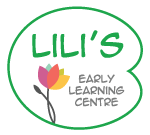Pets play an important part of development in a child’s life. Pets teach children about responsibility and nurturing. The benefits of having pets within the centre must be balanced against the potential health hazards associated with the presence of the animal.
Allergies must be considered before a pet is brought into the centre.
Pets help children from a young age to learn to care for other living beings. They can teach a sense of responsibility, caring and tolerance and offer many opportunities for developing observation skills and basic natural science experiences.
Some simple preventative measures below will minimise risks to health from supervised contact with animals:
- Children should be discouraged from playing with animals while eating
- Children should not put their faces close to animals
- Make sure that children wash and dry their hands after touching animals
- Ensure that animals are treated, wormed and immunised as recommended by a vet
- Clean fish tanks regularly
- Animals that are ill should be treated promptly by a vet
- Avoid animals risk to contaminate sandpits, pot plants and vegetable gardens
- Always wear gloves when handling animal faeces, emptying litter trays and cleaning cages
- Dispose of animal faeces and litter daily and more often if necessary. Place faeces and litter in a plastic bag and put it out with the garbage
- Pregnant women in particular should avoid contact with cat faeces
- Children should not assist in cleaning of bird cages, fish tanks or other animal cages or pens
Families may be asked to assist in the care of the pet during the weekend if necessary
Source: Staying Healthy in Childcare – 5th Edition Policy reviewed August 2017

